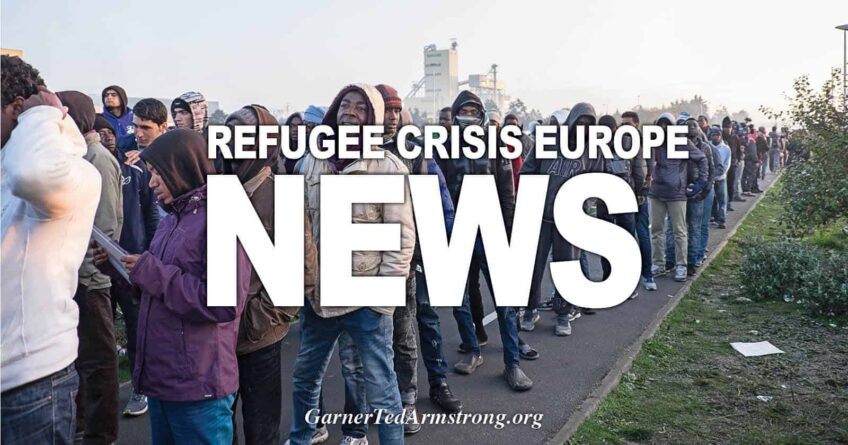Publication of action plan for governments is response to what Vatican sees as one of biggest global challenges of 21st century.
Pope Francis has issued a 20-point action plan to governments on refugees and migrants to try to galvanise their response to an issue seen by the Vatican as one of the biggest global challenges of the 21st century.
His intention is to lay the ground for the drafting of two global compacts on refugees and migration, which are expected to be adopted at the UN general assembly in September 2018.
The roadmap was published on Monday by the Vatican’s migrants and refugees section, which was set up by Francis last year and operates under his direction. The action points were personally approved by the pontiff.
In a message issued before publication, Francis said he had “repeatedly expressed my particular concern for the lamentable situation of many migrants and refugees fleeing from war, persecution, natural disasters and poverty”. The situation was “undoubtedly a ‘sign of the times’,” he said.
The document, Responding to Refugees and Migrants: Twenty Action Points, says the world is facing “the largest movement of displaced people in recent memory”.
It says: “While massive numbers of people have been forced to leave their homes due to persecution, violence, natural disasters and the scourge of poverty, migration should nevertheless be recognised, not as a new phenomenon, but rather as a natural human response to crisis and a testament to the innate desire of every human being for happiness and a better life.
“This reality, with its important cultural and spiritual dimensions, is having a significant impact on attitudes and reactions all over the world.”
The document’s 20 points are grouped in four calls to action: to welcome, to protect, to promote and to integrate. Their “ultimate goal is the building of an inclusive and sustainable common home for all”.
Before detailing the action plan, the authors suggest that distinguishing between migrants and refugees, as the UN does in its separate compacts, is problematic.
“Empirical evidence shows that migration is more and more mixed. This makes it difficult to maintain a clear-cut distinction between migrants and refugees. Often their needs are very similar if not identical,” the document says.
Among its action points are the creation of legal pathways for safe and voluntary migration and resettlement, and a ban on arbitrary and collective expulsions. It suggests states make wider use of humanitarian, student and family reunification visas.
The document says greater support should be available for countries that have borne the brunt of migration: more than half the world’s displaced people are in Africa and the Middle East, with 17% in Europe, according to the UN.
In his message, Francis said personal safety and dignity should be prioritised over national security and, “for the sake of the fundamental dignity of every human person, we must strive to find alternative solutions to detention for those who enter a country without authorisation”.
Francis has indicated that migration should be a major Vatican focus in the run-up to the 2018 UN general assembly. He has made the issue central to his papacy since visiting the Mediterranean island of Lampedusa, where thousands of migrants have landed, within weeks of his election. He has also housed several Syrian refugee families in the Vatican.
Graham Gordon, of the Catholic aid agency Cafod, said: “The Holy Father is making clear that all countries must step up to the plate and pull their weight.
“This is one of the greatest crises of the century so far. Not for the first time, the pope is reminding politicians that history will judge whether they rise to the challenge or abdicate their responsibility.”
Matteo Salvini, the leader of Italy’s anti-immigrant Northern League party, wrote on Facebook: “If you want to do it in the Vatican, go ahead. But as a Catholic, I don’t think Italy can welcome and support the whole world.”
[Disclaimer]







